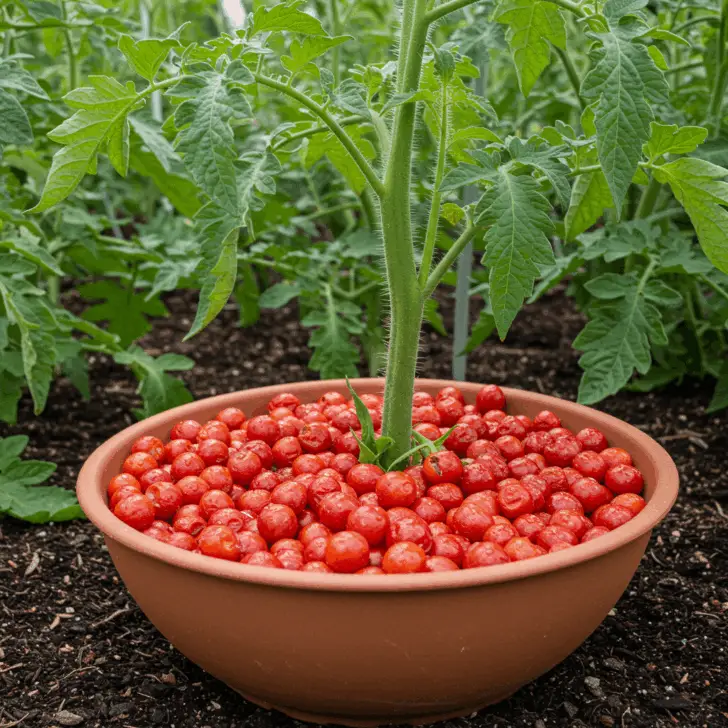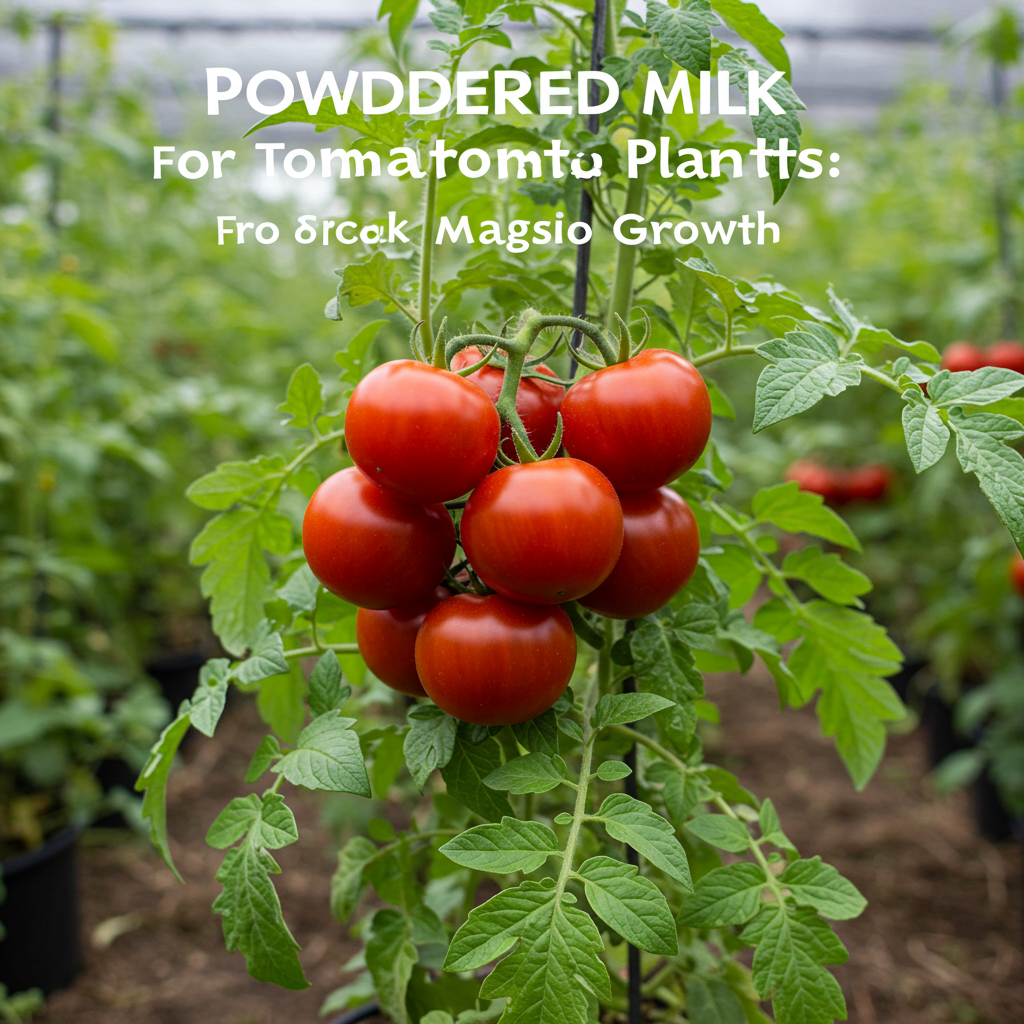Using powdered milk as a fertilizer can be a secret weapon for achieving massive growth in your tomato plants. This article explores the benefits, application methods, and potential drawbacks of using powdered milk in your tomato garden.

Want bigger, healthier tomato plants? Consider adding powdered milk to your gardening routine. This surprisingly effective and affordable fertilizer can provide essential nutrients, boost disease resistance, and ultimately lead to a bountiful harvest.
JUMP TO TOPIC
Why Use Powdered Milk for Tomato Plants?
Powdered milk, often overlooked as a garden amendment, offers several benefits for tomato plants:
A Rich Source of Calcium
Calcium is crucial for cell wall development in plants, especially in rapidly growing fruits like tomatoes. Calcium deficiency can lead to blossom-end rot, a common problem characterized by dark, sunken spots on the bottom of tomatoes. Powdered milk, rich in calcium, helps prevent this issue and ensures healthy fruit development.
Disease Prevention
Powdered milk can act as a natural fungicide, helping to prevent various fungal diseases like powdery mildew and early blight that commonly affect tomato plants. The milk proteins create a protective barrier on the leaves, inhibiting fungal growth.
Nutrient Boost
Besides calcium, powdered milk contains other essential nutrients like potassium, phosphorus, and magnesium, all beneficial for overall plant growth and fruit production. These nutrients contribute to stronger stems, healthier foliage, and more vibrant tomatoes.
Affordable and Accessible
Compared to commercial fertilizers, powdered milk is a cost-effective and readily available alternative. You likely already have some in your pantry, making it a convenient option for boosting your tomato garden without breaking the bank.
How to Use Powdered Milk on Tomato Plants
There are several ways to apply powdered milk to your tomato plants:
Soil Drench
Mix 1 cup of powdered milk with 5 gallons of water.
Stir thoroughly until the powder is fully dissolved.
Drench the soil around the base of your tomato plants with the solution every 2-3 weeks.
Foliar Spray
Mix 1/2 cup of powdered milk with 1 gallon of water.
Pour the solution into a spray bottle.
Spray the leaves of your tomato plants thoroughly, ensuring both the top and bottom surfaces are coated. Repeat every 1-2 weeks, especially during periods of high humidity or disease pressure. (Consider adding a drop or two of dish soap to help the solution adhere to the leaves.)
Dry Application
Sprinkle a thin layer of powdered milk directly onto the soil around the base of your tomato plants.
Water lightly to help the powder dissolve and penetrate the soil.
Potential Drawbacks and Considerations
While powdered milk offers several advantages, it’s essential to be aware of potential drawbacks:
Milk Spoilage
Using too much powdered milk or applying it in hot, humid conditions can lead to milk spoilage around the plants. This can attract unwanted pests and create an unpleasant odor. Use the recommended dilutions and avoid applying during the hottest part of the day.
Not a Complete Fertilizer
Powdered milk shouldn’t be considered a complete fertilizer. It supplements, not replaces, a balanced fertilizer program. Continue using your regular fertilizer alongside powdered milk applications.
FAQs about Using Powdered Milk for Tomatoes
Q: Can I use any type of powdered milk?
A: Yes, any type of nonfat or full-fat powdered milk will work. However, avoid using sweetened or flavored varieties.
Q: How often should I apply powdered milk?
A: Apply powdered milk every 2-3 weeks as a soil drench and every 1-2 weeks as a foliar spray, especially during periods of high humidity or disease pressure.
Q: Can powdered milk harm my tomato plants?
A: Powdered milk is generally safe for tomato plants when used in the recommended dilutions. However, overuse can lead to spoilage issues as mentioned above.
Q: Will powdered milk attract pests?
A: If the milk spoils, it may attract pests. Use the correct dilutions and avoid applying during the hottest part of the day to minimize this risk.
Q: Can I use powdered milk on other plants?
A: Yes, powdered milk can be beneficial for other plants like peppers, roses, and squash. It’s particularly helpful for plants susceptible to powdery mildew.
Conclusion
Using powdered milk for tomato plants is a simple, affordable, and effective way to boost growth and improve overall plant health. By providing essential nutrients like calcium and acting as a natural fungicide, powdered milk can help you achieve a thriving tomato garden and a bountiful harvest. Remember to follow the recommended application methods and be mindful of potential drawbacks to maximize the benefits of this surprising garden secret.

